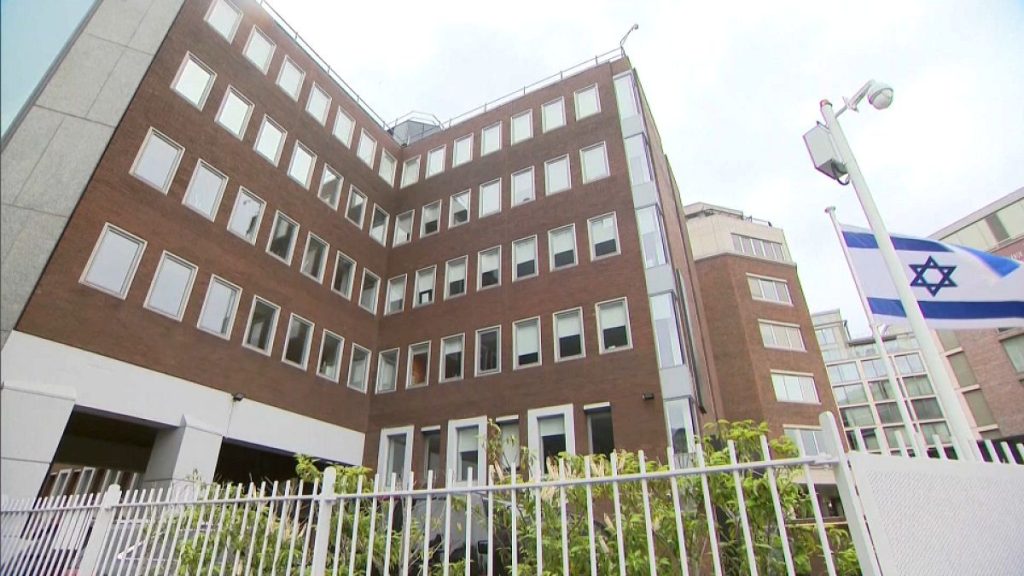The escalating conflict between Israel and Palestine has reached a new diplomatic low with Israel announcing the closure of its embassy in Dublin, citing Ireland’s “extreme anti-Israel policies.” This decision marks a significant deterioration in the already strained relationship between the two nations, particularly since the outbreak of the war in Gaza in October 2023. Israel’s Foreign Minister, Gideon Saar, directly attributed the closure to Ireland’s stance on the conflict, accusing the country of crossing “every red line” in its relations with Israel. While Ireland’s Prime Minister, Simon Harris, expressed regret over the embassy closure, he firmly reiterated Ireland’s commitment to its position on the Gaza war, emphasizing the country’s opposition to civilian casualties and the imperative for a ceasefire, the release of hostages, and the provision of humanitarian aid.
The core of the discord stems from Ireland’s vocal criticism of Israel’s actions in Gaza, particularly regarding civilian casualties. Ireland, along with several other European nations, formally recognized a Palestinian state, a move that further strained relations with Israel. Adding fuel to the fire, Ireland’s recent decision to formally support South Africa’s case against Israel at the International Court of Justice, accusing Israel of genocide in Gaza, has been interpreted by Israel as a blatant act of hostility. Israel vehemently denies these accusations, while Ireland maintains its position, citing concerns that a narrow interpretation of genocide fosters a culture of impunity that minimizes the protection of civilians, as articulated by Ireland’s deputy premier and foreign affairs minister, Micheál Martin.
Meanwhile, the devastating conflict in Gaza rages on, with the Palestinian death toll approaching a staggering 45,000. Israeli airstrikes continue to pound the northern region of Gaza, inflicting heavy casualties. Among the targets hit were the Khalil Aweida school in Beit Hanoun, resulting in the deaths of at least 15 people, including families and children. In Gaza City, airstrikes on houses sheltering displaced people claimed the lives of at least 17 individuals, including women and children. The Israeli military defends these actions, claiming to have targeted “terrorist cells” and meeting points.
The escalating violence is not confined to ground attacks. An Israeli airstrike killed Palestinian journalist Ahmed al-Lawh, who worked for Al Jazeera, in central Gaza. The strike targeted a Gaza civil defense agency point in the Nuseirat refugee camp, also killing three civil defense workers, including the head of the agency in Nuseirat. The civil defense agency serves as Gaza’s primary rescue organization and operates under the Hamas-run government. These attacks underscore the indiscriminate nature of the conflict and the devastating impact on civilians and essential service providers.
The backdrop of this escalating conflict is the October 7, 2023 attack by Hamas and other militant groups from Gaza on southern Israel, which resulted in the deaths of approximately 1,200 people and the capture of around 250 hostages. Israel’s subsequent retaliatory offensive in Gaza has led to the immense Palestinian death toll, with the Gaza Health Ministry reporting that over half of the deceased are women and children. While the ministry’s count does not differentiate between combatants and civilians, the sheer number of casualties, especially among vulnerable populations, raises serious concerns about the proportionality and impact of Israel’s military response.
The closure of the Israeli embassy in Dublin signifies a significant diplomatic rupture and underscores the deep divisions over the Gaza conflict. While Ireland insists its position is rooted in humanitarian concerns and international law, Israel views it as an unacceptable overstep and a direct challenge to its security interests. The escalating violence in Gaza, marked by a rising death toll and the targeting of civilian infrastructure, further complicates the situation, dimming hopes for a peaceful resolution and exacerbating the humanitarian crisis in the region. The international community faces the daunting task of mediating this complex conflict and finding a path towards de-escalation and a lasting peace.














